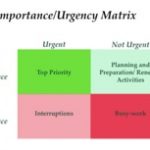Strategies for Soul-Satisfying Success
“The Joy of Strategy; A Business Plan for Life” presents eight practical steps that mix soul and strategy to help readers find their purpose, set goals, and create a personal strategic plan to discover and realize their life’s ambitions.
The Love/Hate Relationship with Training Presentations
To ensure your audience is not making a beeline for the door or catching a quick nap during your presentation, here are some tips to make your slides both entertain and resonate.
The Shape of Talent
For many years, the corporate world has relied on two proxies to measure individual talent. The first is credentials, which provide a convenient estimate of the facts a person has mastered or the knowledge an individual possesses. The second is a person’s technical skills, which usually are assessed by previous work experience. But could there be more?
Leadership Development and the Fog of War
In its Mission Command philosophy, the U.S. Army distinguishes between risk and uncertainty. Risk relates to known hazards, while uncertainty is the result of unknown or ambiguous hazards resulting from the complex and highly interactive makeup of military operations, complex human beings, and a thinking enemy. What can businesses learn from the military to mitigate uncertainty?
Novo Nordisk’s Hiring Blitz
Novo Nordisk Inc. (NNI) embarked on the most complex and second largest expansion in its history, with a goal to hire 600 employees in just 12 weeks. Utilizing a combination of in-person and WebEx training, the Hiring Blitz was designed to prepare numerous stakeholders to recruit top talent during this expansion. As a result, NNI filled 95 percent of the 600 roles, and all but 1 percent are still with the company today.
A Need for Environmental Test Training
Military service, manufacturer, and laboratory training directors often face a laboratory staffing problem: When they hire newly graduated mechanical and electrical engineers for these laboratories, they often must provide them with specialized training as environmental testing rarely is taught in universities.
Don’t Tell Me, Show Me!
When trainers actively engage video as a tool for training, they will be able to more efficiently equip their trainees with the skills needed to be successful. A variety of solutions are available for trainers to create affordable videos in-house. One is screencasting, which allows users to record their screen, including anything from presentation slides to training documents.
Soaring to New Heights
Confidence and inspiration are directly connected to how we experience our lives. With confidence we take the risks we need to take to live the lives we imagine for ourselves. Inspiration is the spark that ignites our passion for life and the desire each day to grow and contribute.
Discover Your Team of Inner Negotiators
Since you first learned about Freud and what he called the ego, id, and superego, you’ve heard the idea that there’s more to you than meets the eye. As you get to know your inner negotiators, you’ll expand your profile. Then you’ll get better outcomes, because you’re using strengths and skills you’ve never put to good use before.
Supercompetent Speaking: The Emcee’s Introduction
Take charge from the beginning. Write the emcee’s introduction to your presentation yourself, provide it well before the event, and ask that it be read verbatim.


